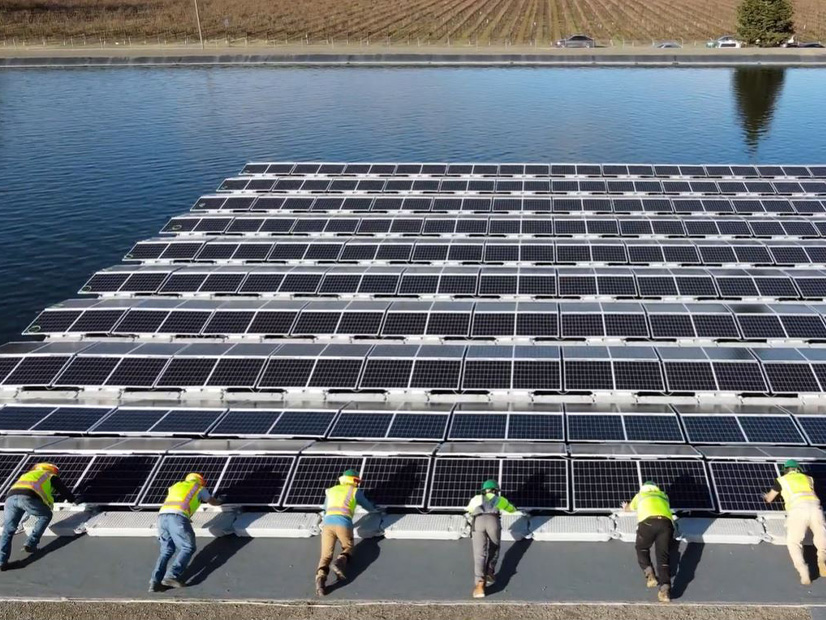
Plainfield Township, Kent County could have a solar farm operating on a pond near its water treatment plant in a year’s time if all permits are approved and construction goes forward, said Cameron van Wyngarden, the township supervisor.
The 800 kW of energy generated by the floating farm would be used entirely by the water treatment plant, which serves the community of 31,000. Plainfield has agreed to buy the energy produced for 30 years from San Francisco-based White Pine Renewables, which will build and operate the plant. The township says the project could save it as much as $2 million over the next three decades.
White Pine already operates a 5-MW project at a wastewater treatment facility in in Healdsburg, Calif., that it says is the largest floating solar energy system in the country.
Van Wyngarden said both the township and the company had hoped to find a land-based site for the project, which would have been cheaper to build. But the dynamics of the township’s need and physical situation made the floating farm the only option available.
The township owns the 38-acre pond, which is left over from a gravel pit. It is adjacent to the water plant, and the plant uses the pond for its operations. There is no swimming or boating or other recreational use of the pond, he said.
Because the site is in a flood plain, the solar operation would have to undergo review by the state Department of Environment, Great Lakes and Energy. The plans will also have to be reviewed by the state Public Service Commission, Van Wyngarden said.
White Pine Renewables will handle that and other permits needed to get the solar field in operation. “We know how to produce the water and they know how to make energy,” Van Wyngarden said.
Solar and wind energy projects have generated controversy in many other Michigan communities, but Van Wyngarden said he has heard no comments opposing the project.
Van Wyngarden noted the project would not involve either cutting down trees or using farmland. Much of the opposition to renewable energy projects across the state has involved worries about losing farmland.
